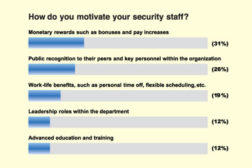Security Leadership and Management
Think You Know How to Investigate a Theft or Fraud? Think Again. Here’s the Right Way to Do It
Many investigators actually have very poor interview skills – here’s how to conduct an interview the right way to gather the information that you need.
May 10, 2011
Sign-up to receive top management & result-driven techniques in the industry.
Join over 20,000+ industry leaders who receive our premium content.
SIGN UP TODAY!Copyright ©2024. All Rights Reserved BNP Media.
Design, CMS, Hosting & Web Development :: ePublishing















